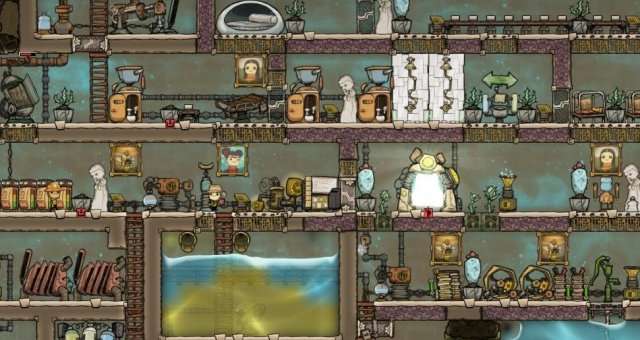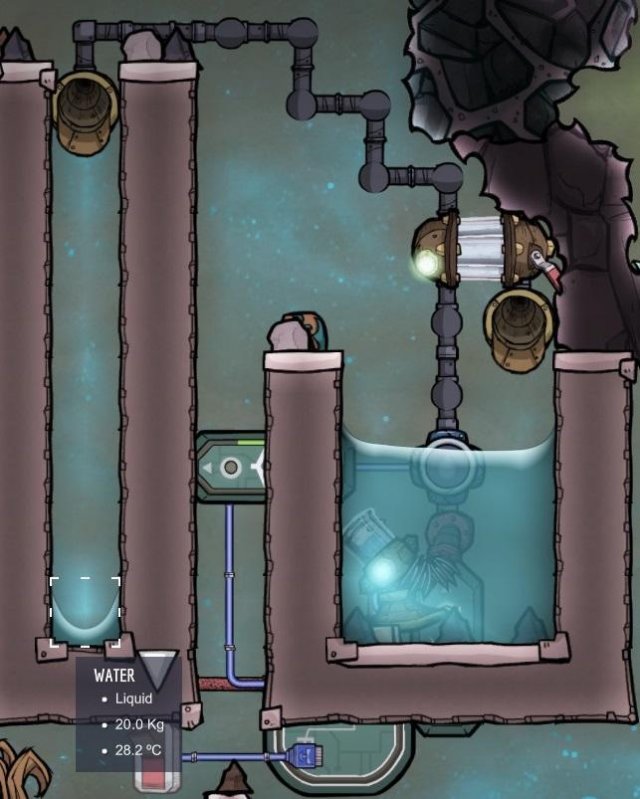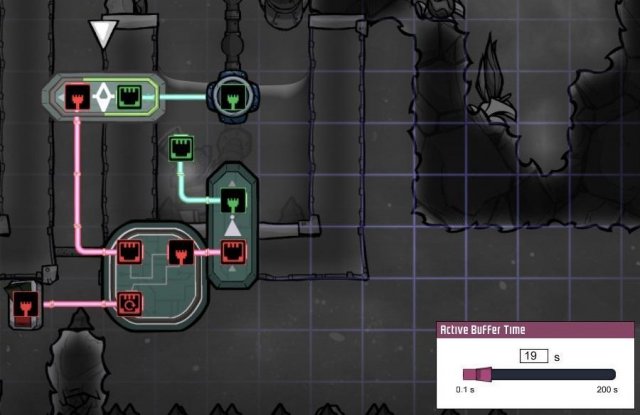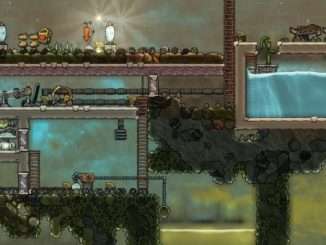
There are times when you need just exact amount of liquid transported to some location. This guide will help you to achieve that.
Other ONI Guides:
- Gameplay Tips.
- Stress (How to Handle It).
- Liquid / Gas Valve Guide.
- Ultimate Gas Weight Guide.
- Useful Construction Patterns.
- Advanced Pipe Mechanics.
Preface
All credit goes to AVE!
In the Space Industry upgrade we have received different rocket engines and a differentiation between fuel and oxidizer tanks. Because of that and varying distance to asteroids we can reach some of them with less fuel/oxidizer that a tank can hold. We can fill them to the brim of course, but there is a problem – any and all excesses are lost when rocket returns from the trip. That’s right, rocket always returns with completely dry tanks!
That’s why we can and should fill only exact amount of fuel and oxidizer in order to conserve resources.
Preparations and Building
First, you obviously need some liquid that you want to transfer – it should be more than 1 full tile height. Then, of course, a liquid pump, some piping, wires, one liquid valve and a bit of refined metal for automation and element pipe sensor.
Here I measured exactly 20 kg of water, but it can be done with any liquid, even liquid oxygen or liquid hydrogen (assuming that it will not change state during pumping, of course).
The build is extremely simple, the only thing that should be noted is the valve – it should be set to 9 kg/s throughput.
Automation
Again, this is simple too, here is the screenshot:
The filter gate should be primed to N-1 seconds, where N is the required liquid amount in kilograms.
Be warned that while memory toggle saves it’s state on game load, filter/buffer gate is not, so try to not leave the game when the operation is in action, as otherwise the result can not be predicted.
The switch is for starting the liquid transfer process – it can be automation from rocket or anything else.
Also, when building the automation, FIRST CYCLE STARTS WITHOUT WARNING (due to memory switch being in off state when first built), so either do a first ‘dry run’ without liquid or be prepared for the consequences.
Final Words
If you wonder why there is a valve in the build, there is an explanation.
The liquid pump has a ‘warmup’ state when it is turned on and the first packet is always 2kg. When pump is turned off, there is a ‘cooldown’ state of the pump and the last packet is 4 kg most of the time, but sometimes it is 6 kg. I was unable to replicate exact requirements for the 6kg packet, I’ve seen it one time only.
So, in order to count exact liquid amount we need to send only full packets to the pipe. As the valve throughput is 9 kg/s, first 2kg packet goes through valve and returns to the tank. Then the second and all next, full 10kg packets are split into 9kg (goes through valve too) and 1kg packets that went to the destination. Final 4 kg packet goes through valve too, we do not need it as it is from the ‘cooldown’ pump state and is a leftover.
If you want to send more than 201 kg of liquid, you can stack filter gates sequentially, only one of them is needed to be set to less than one (i.e. if you want to send 400kg, set one to 199 and another to 200).







Be the first to comment